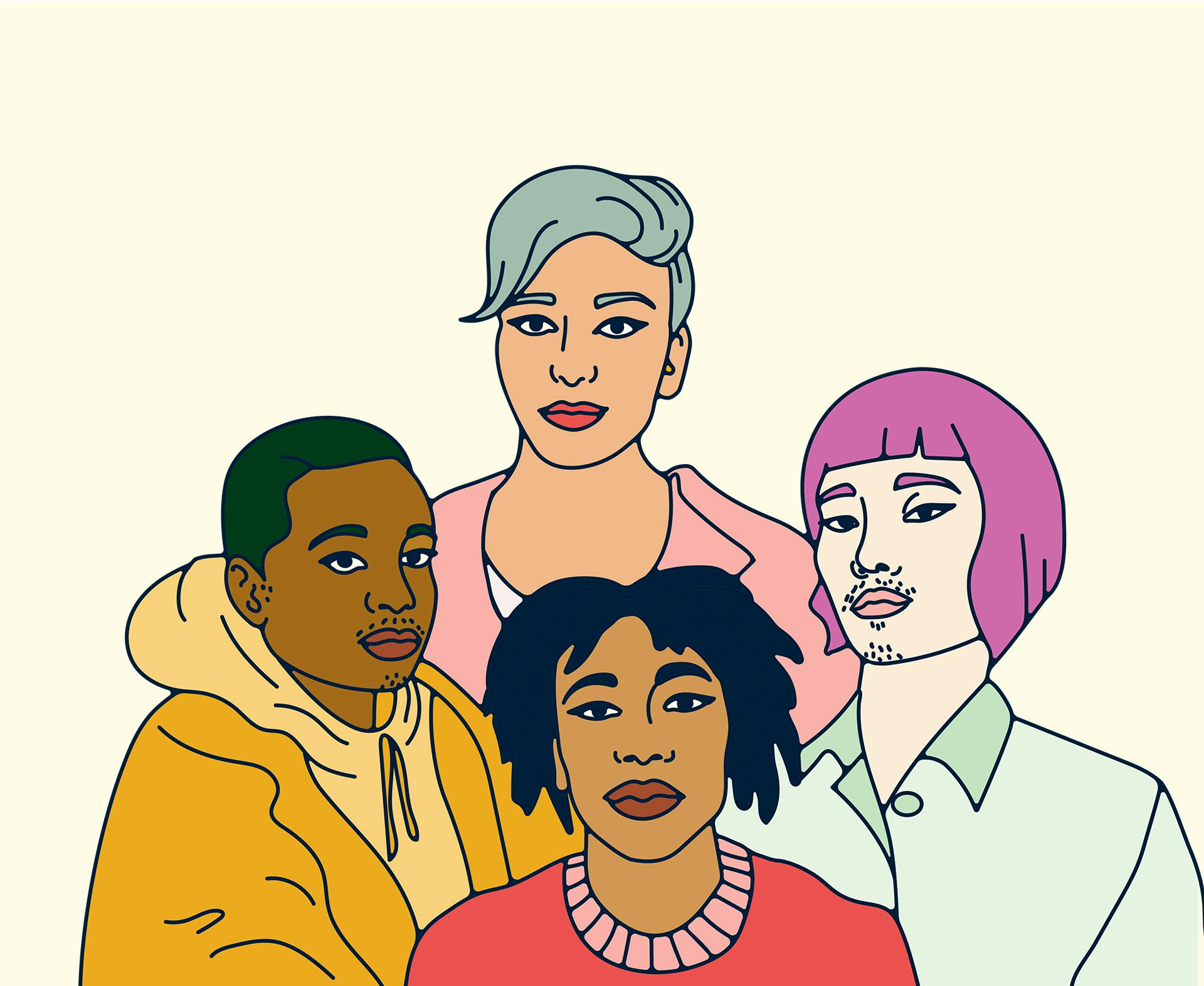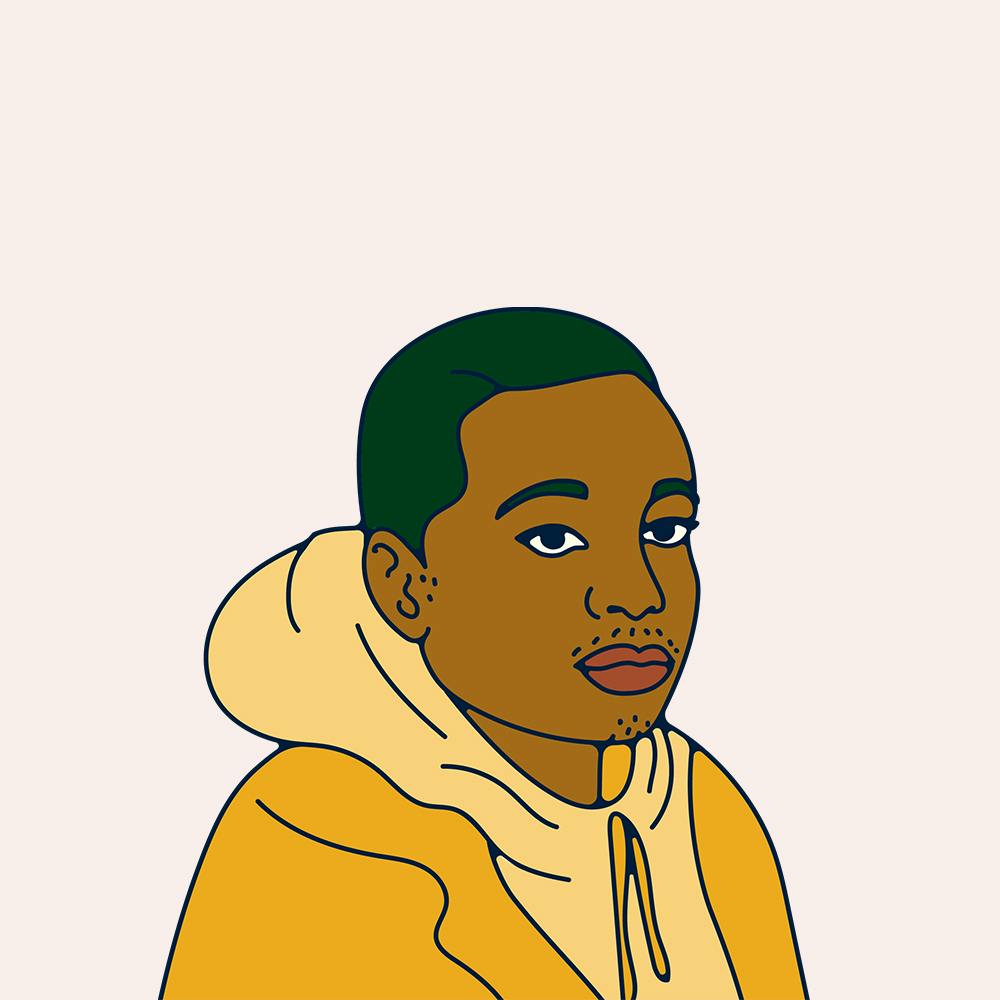Illustrated by Sabrina Bezerra
There are certain things that happen in your life that will change your entire experience and perspective of the world. That thing, for me, was periods.
My period story begins like many others: I hated my period. It was something to hide, to be ashamed of, or to be used as a way to invalidate my identity as a man. When I had a ‘regular’ period I experienced excruciating pain that in later years developed in phantom pains (or as I like to call them, internal periods), something I wasn’t expecting after five years of being on testosterone.
Shopping for products would leave me filled with anxiety and paranoia because buying period care products felt like a form of outing myself as trans – at least that’s what my brain would tell me.
But by far the hardest part was society's viewpoint on periods. To experience periods you must be a woman... that’s it. Nowhere in language or imagery did I see trans people represented, and that feeling is one I’ll never forget. I internalised that messaging so deeply that every cycle left me feeling fractured in my identity. All and all, periods were trauma to me. I always wanted a better relationship with my period but the truth was, I had no idea how to achieve that.
“
Every cycle left me feeling fractured in my identity.
In March of 2018 I was invited to front a period campaign that aimed to tackle period stigma and promote a positive message around menstruation. They were also specifically looking for a trans man to be involved as they wanted to be inclusive of all genders who bleed.
With much hesitation, I accepted their offer, and not only did the campaign make history, but it made something inside of me shift. That campaign turned out to be the catalyst I needed to start my journey of healing my relationship with my period.
Over the following months I started to see the conversation evolving. People wanted the period space to really represent everyone who bleeds. For far too long trans and non-binary individuals were completely abandoned. Hearing conversations take place that should involve us but without us. Using products that we needed but were never made for us. And looking at people who shared the same experience as us but never seeing ourselves included and now, it was our time to be heard.
The more gender-inclusive the period space became the more I realised that I may not like my period, but the majority of my suffering wasn’t physical. It was to do with the way that I knew society looked at me, a man, experiencing periods. My shame and suffering was more rooted in the portrayal of periods, and not my period itself.
Once I discovered this I knew that a big part of my healing would be unlearning all of the brainwashing society told me about menstruation.

Society told me only women experience periods.
So I did research into biology to find out whether it’s universally agreed that periods are only experienced by women. I found that although binary language is commonly used in scientific literature where periods are discussed, it is not a scientific fact that only women experience periods. To reinforce my findings I read period experiences from those who were trans and non-binary, and when I couldn’t find that I learned more about periods from those who use inclusive language.
Society told me that periods are shameful.
But what was there to be ashamed of? Periods are a perfectly normal bodily function for someone who was born with XY chromosomes.
Society told me that periods aren’t something you’re supposed to talk about.
So I spoke about them as much as I could. I became an advocate in the period space and nicknamed myself the period boy.
All of my research provided me with the knowledge to see things differently, but ultimately it was my mindset towards my period that needed to change to solidify my healing. I spent the next year or so reclaiming my period, learning to accept it in a narrative that felt comfortable to me, and before I knew it I was openly discussing periods in my personal life.
“
I nicknamed myself the period boy.
Not only did I become comfortable with my period, but experiencing them made me a better man and I realised that I had more empathy for others who experienced periods. My older sister was recently diagnosed with fibroids and polyps. For the last four years she’s experienced heavy bleeding and painful periods, but this was something she kept quiet. Now, she openly discusses her periods with me which has allowed us to bond over our similar experience.
My girlfriend also told me she feels less shame around her period because of me – “when you’re around someone who refuses to be ashamed of something you’ve spent your life being taught to be ashamed of you start to lose your shame too”. That’s something I’m really proud of. And finally, at the bare minimum, I’m proud to not be one of the many men who perpetuates period shame.
Many people, women included, are incapable of seeing their periods as something neutral, let alone positive, because of the way we’ve been socialised to see our periods.
Daye surveyed their community to collect the experiences of what it’s like to have periods when you’re trans, non-binary and gender non-conforming. Out of the hundreds of entries, many trans men reported suffering from dysphoria and having conflicting thoughts on their identity because of their periods, while many non-binary individuals completely disconnect themselves from the experience, seeing it as “a gendered burden”.
My journey has taught me many things, but the most prominent lesson is that gender and bodies are so much more complicated than we are taught. This gap in knowledge forced me to define manhood for myself, in a way that acknowledges body parts and bodily functions but recognises that we don’t know everything.
The world leaves us feeling negatively about our period before we’ve even got a chance to determine how we feel for ourselves. And although we cannot change our circumstances, we’re all capable of developing a different mindset.
Depending on your identity and situation, periods will come with their own struggles and complexities. But as someone who has spent their entire life existing without a blueprint I assure you, there lies so much power in creating your own story.






